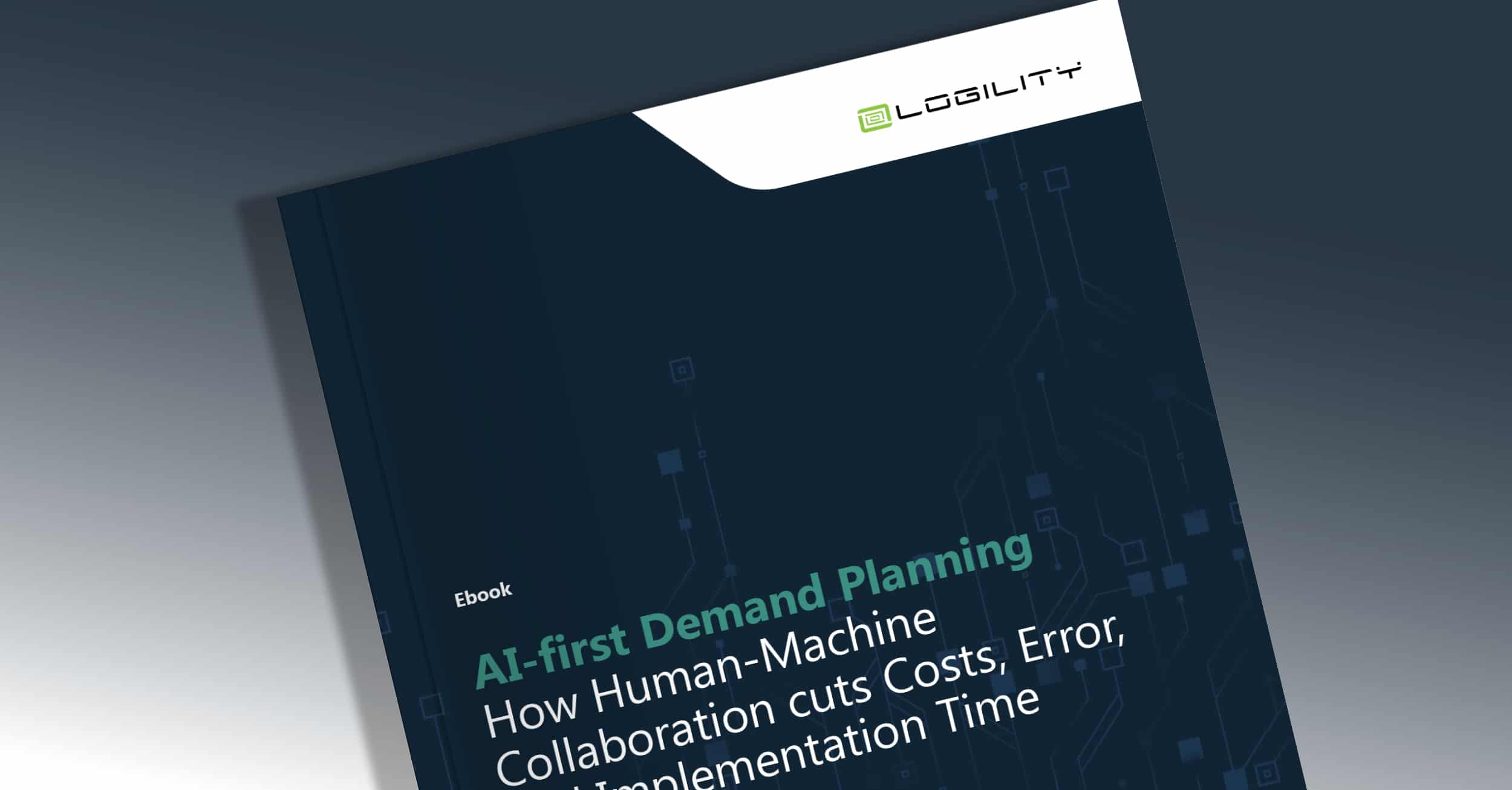
Navigating the $5 trillion North American apparel market requires precision, especially when dealing with the intricate complexities of forecasting and inventory management. This blog cuts through the complexity, presenting how supply chain AI strategy and machine learning, especially through the power of generative AI and InventoryAI+, are essential in crafting a smarter, more responsive retail supply chain.
Mastering the art of forecasting is critical in the apparel industry. This sector, characterized by its diversity in consumer trends and seasonality, demands high precision in planning and execution.
Accurate forecasting is key to ensuring merchandise is in the right place at the right time, directly impacting inventory management, cost reduction, and customer satisfaction. Forecasting starts as early as spring for major seasons like Christmas, ensuring products are on shelves when demand peaks.
This challenge is magnified for larger players who span multiple channels—wholesale, retail, and e-commerce—each with its own set of complexities and customer expectations.
Navigating Complexity with AI-First Forecasting
AI-first forecasting leads the charge in predicting market trends and consumer behavior, adeptly handling the complexities of forecasting in the apparel industry. Supply chain AI algorithms dive into patterns and data, offering precise predictions crucial for decisions across promotions, seasonal trends, market disruptions, and new product launches.
This approach is significant, especially considering a Deloitte survey that found 79% of companies with efficient supply chains see better revenue growth. AI-first forecasting is crucial in achieving this efficiency—transforming the retail planning landscape and driving financial success in the apparel market.
Generative AI significantly enhances supply chain transparency. It sifts through extensive data, providing actionable insights that aid in more informed decision-making across all levels of the organization, including tackling challenges like inventory cost management and markdown reduction. Generative AI’s role extends across various operational layers:
- Strategic Planning Support: Offering analytical support needed for strategic decision-making, generative AI’s ability to process vast amounts of data aids in formulating strategies that are both responsive and forward-thinking. A Deloitte survey highlights the empowerment of executive leadership in managing supply chains, with 56% of leaders having a senior executive at the helm. This finding aligns with generative AI’s role in assisting top-level decision-makers by providing in-depth insights for strategic planning and operational excellence.
- Revolutionizing Demand Forecasting: Detailed insights into market trends and consumer behaviors from generative AI, such as ChatGPT, are crucial for businesses aiming to align their inventory efficiently with market demands.
- Optimizing Inventory Management: Generative AI helps maintain optimal inventory levels, reduces the risk of overstocking or stock shortages, and ensures a more efficient supply chain.
Generative AI Chat Functionality in Demand AI
Learn more about DemandAI+ in this demo.
Watch the DemoReal-Time Adaptation to Market Shifts
The shift towards real-time, market-driven forecasting in the apparel industry is crucial. Traditional methods based on historical sales data no longer suffice.
Over 55% of industry professionals now prioritize dynamic planning and demand forecasting, highlighting the need for strategies that are not just reactive but predictive and proactive. This approach enhances forecast accuracy and aligns company strategies more closely with real-time market conditions.
Cutting Through Forecasting Challenges with AI
AI technology enhances the efficiency and accuracy of supply chain operations. Its implementation transforms how businesses manage inventory and forecast demand, leading to streamlined and effective decision-making processes.
Streamlining Operations with AI
AI’s ability to quickly process and analyze large volumes of data is invaluable in resolving key supply chain challenges, particularly in inventory management and forecasting. By applying supply chain AI strategy, businesses can sift through data faster and more accurately, enabling them to make well-informed decisions rapidly. This streamlined process leads to more efficient operations, reducing the time and resources previously spent on manual and time-consuming tasks.
Measurable Improvements from AI Integration
The impact of integrating AI into supply chain forecasting is significant and measurable:
- Increased Efficiency: Companies using AI for supply chain management report up to a 70% reduction in the time allocated to weekly planning. This drastic decrease allows for a greater focus on strategic activities and other core business operations.
- Enhanced Forecast Accuracy: AI has been shown to reduce forecast errors by 15-30%. This increased precision in forecasting leads to more reliable and actionable planning, enabling businesses to anticipate and meet market demands effectively.
- Optimized Inventory Management: Through AI, companies achieve better inventory control, significantly reducing instances of overstocking or stock shortages. This optimization ensures that resources are used efficiently and cost-effectively.
Adopting supply chain AI strategy and management marks a significant step forward for businesses, allowing them to handle complex market conditions more effectively. This technology makes operations more responsive and drives data-informed decision-making, positioning companies for success in a rapidly changing market environment.
Constantly evolving consumer behavior and increasing expectations for quick delivery and personalization add complexity to forecasting and inventory planning. During peak seasons like holidays, these challenges are amplified. AI’s ability to analyze diverse demand drivers, like weather changes, aids retailers in making informed, agile decisions.
For specialty retailers facing the holiday rush, AI-first solutions are pivotal for processing vast data and presenting actionable strategies. This helps in maintaining efficiency and controlling costs during critical sales periods.
The application of advanced AI in inventory planning is a significant leap forward in supply chain management. Tools like InventoryAI+ equip businesses to harness AI’s full potential for more effective inventory control and decision-making.
Advanced AI for Enhanced Inventory Insights
The core of maximizing supply chain AI’s potential in inventory planning lies in its ability to provide enhanced real-time insights. Advanced AI algorithms analyze large quantities of data, offering a clear, up-to-date view of inventory levels, demand forecasts, and supply chain dynamics.
Real-Time Alerts for Immediate Issue Resolution
A key advantage of AI-driven inventory planning tools is their capability to provide instant alerts and insights. This feature is essential for promptly identifying and addressing inventory-related issues, which minimizes the risk of overstocking or stock shortages. With real-time problem-solving capabilities, businesses can maintain optimal service levels and efficiently manage inventory.
AI tools like InventoryAI+ incorporate intelligent scoring and economic prioritization, guiding businesses to focus their resources on the most critical areas. This approach ensures that data-driven decision-making aligns with the company’s financial goals. By prioritizing based on economic impact, businesses can lower costs and optimize their inventory to meet both operational and financial objectives.
Automating Inventory Policy Decisions
One of the innovative aspects of AI in inventory planning is the automatic identification of the best inventory policies for each SKU. By considering factors such as demand variability, supply chain constraints, and service level requirements, AI can tailor inventory strategies for individual SKUs. This automation leads to significant improvements in service levels and cost savings, demonstrating the remarkable potential of AI in revolutionizing inventory planning.
Integrating Sustainability into Supply Chain AI Strategy
Sustainability is now a crucial aspect of supply chain management. Logility’s approach focuses on reducing environmental impact while enhancing efficiency and profitability. By leveraging AI-first strategies and tools like InventoryAI+, businesses can optimize inventory to minimize waste and excess, aligning with sustainability goals.
Sustainable supply chain practices not only align with environmental and social responsibility but also offer financial advantages:
- Cost Savings and Risk Mitigation: Adherence to sustainability standards lowers regulatory and reputational risks while efficient resource use and reduced waste lead to direct cost reductions.
- Enhanced Brand Value: Sustainable, eco-friendly practices strengthen brand reputation and customer loyalty, opening the door to new markets and opportunities.
- Regulatory Compliance: Meeting sustainability standards avoids legal penalties and business disruptions.
Logility’s AI-first strategies and tools—like InventoryAI+—aid retailers in optimizing inventory to minimize waste and excess. Logility helps businesses make decisions that balance sustainability goals with financial objectives by leveraging data and analytics.
Embracing AI-first strategies in supply chain planning is essential for retailers seeking a competitive edge. These strategies ensure precise control over inventory, directly addressing the challenges of having merchandise in the right place at the right time, managing costs, and improving customer service in a constantly evolving market.
AI-First Demand Forecasting
Ready to learn more about how AI-first demand forecasting can bring value to your supply chain? Download a free copy of this eBook.
Free eBook



